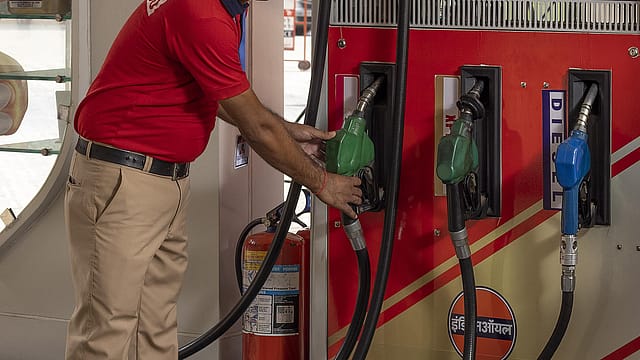Budget 2022: Unblended petrol, diesel to cost ₹2 more from October 1
ADVERTISEMENT

Most of the petrol and diesel sold in India will cost ₹2 more from October 1, according to a proposal in finance minister Nirmala Sitharaman's Union Budget 2022-23. "Blending of fuel is a priority of this government. To encourage the efforts for blending of fuel, unblended fuel shall attract an additional differential excise duty of ₹2 per litre from the 1st day of October 2022," she said in the budget speech.
The present percentage of blending of bio-diesel in diesel was less than 0.1% and that of average ethanol blending percentage in petrol was 8% as of July 26, Union Minister of State for Petroleum and Natural Gas Rameshwar Teli had informed the Lok Sabha in a written reply in August.
According to the report of Niti Aayog's expert committee on roadmap for ethanol blending in India 2020-25 and as per the National Policy on Biofuels – 2018, the target is to have 20% ethanol blending under the Ethanol Blended Petrol (EBP) Programme by 2030. "Currently petrol with 10% ethanol blend (E10) is being retailed by various oil marketing companies in India, wherever available. However, as sufficient quantities of ethanol are not available, therefore, only around 50% of petrol sold is E10 blended, while the remaining is unblended petrol (E0). The current level of average ethanol blending in the country is 5% (Ethanol Supply Year 2019-20). Due to several interventions in the supply side of ethanol, the Ministry of Petroleum aims to achieve 10% ethanol blending levels in the Ethanol Supply Year (ESY) – 2021-22," the report said.
January 2026
Netflix, which has been in India for a decade, has successfully struck a balance between high-class premium content and pricing that attracts a range of customers. Find out how the U.S. streaming giant evolved in India, plus an exclusive interview with CEO Ted Sarandos. Also read about the Best Investments for 2026, and how rising growth and easing inflation will come in handy for finance minister Nirmala Sitharaman as she prepares Budget 2026.
The committee estimates an ethanol demand of 1,016 crore litres by 2025 for implementing the blended programme. However, India's current ethanol production capacity is 426 crore litres derived from molasses-based distilleries, and 258 crore litres from grain based distilleries. Compressed Biogas (CBG) from agri-waste, are estimated to have a potential of 15 million tonnes a year.
To close this 700 odd litres gap, the public sector oil marketing companies are now setting up ethanol plants with agri-waste procurement arrangements from farmers. "Nearly one-fifth of the GDP of India comes from the agricultural sector. So are encouraging entrepreneurs to set up CBG plants and we are giving them offtake guarantee. The government has recently allowed CBG retail sales, as an automotive fuel or can be injected in the pipeline. We are investing ₹1,000 crore in CBG. Similarly, in 2G ethanol, we are investing another ₹1000 crore," SM Vaidya, CMD of Indian Oil, said in an interview with Fortune India.
